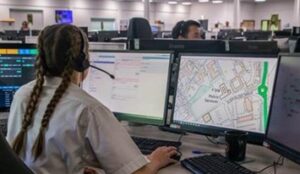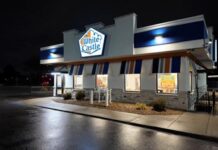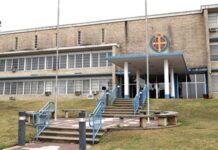
U.K. fire and rescue services (FRSs) Hereford and Worcester FRS, Shropshire FRS, Cleveland Fire Brigade, and Country Durham & Darlington FRS have selected Motorola Solutions to deploy a new Control Room Solution (CRS) utilising a shared control room platform to allow the four control rooms to work independently as well as a collaborative services hub.
The new solution integrates workflows from initial call-taking to dispatch, into an intuitive and unified response system. It will standardise data and processes and provide control room staff with the ability to more quickly respond to incidents and be able to scale operations and capabilities in times of high demand.
“Our control room is an essential function and the first point of contact to our communities in any emergency,” said Jon Pryce, Chief Fire Officer, Hereford and Worcester Fire and Rescue Service.
“By creating this new multi-agency hub, our four fire services can manage incidents together when they need to, such as in spate conditions, when a control room may need to cover a large amount of incoming 999 calls. The new Control Room Solution will help us to maximise the capabilities of our control room staff and use the latest technology to mobilise and coordinate front-line staff.”
“By adopting this innovative approach, fire and rescue services can enhance capabilities, improve service delivery, and minimise costs by sharing the same underlying infrastructure,” said Fergus Mayne, U.K. and Ireland country manager at Motorola Solutions.
“By choosing a hub solution, emergency services foster standardisation for seamless information exchange during joint operations and increase scalability to accommodate varying demand levels especially leading to faster response times.” The four Fire & Rescue Services working together operate 77 fire stations, covering a population of 2.5 million people.
As part of the deployment, the shared platform encompasses an integrated communication control system (ICCS) for call-taking, computer-aided dispatch (CAD), and data recording to help each FRS increase the effectiveness and resilience of incident response.











